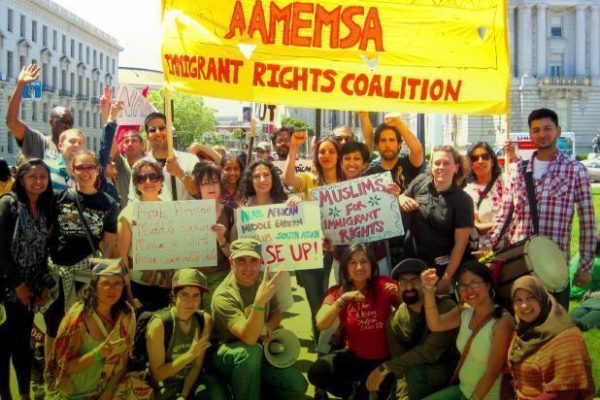Seventy-five years after SFF’s founding, we look back on our unwavering commitment to social justice in the Bay Area.
1940s
January 16, 1948
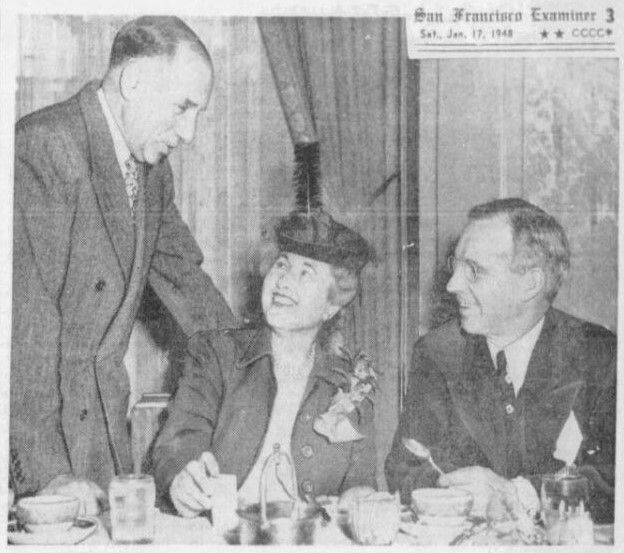
The San Francisco Foundation is officially inaugurated at the Sir Francis Drake Hotel in Union Square. The foundation’s launch is the result of years of work by Marjorie de Young Elkus of the Columbia Foundation and Leslie Ganyard of the Rosenberg Foundation—two former public servants who dedicated their careers to social welfare. The two approach Daniel E. Koshland Sr. of Levi Strauss & Co and attorney Gardner Bullis to serve as chairman and vice chairman. Photo: San Francisco Examiner
1948
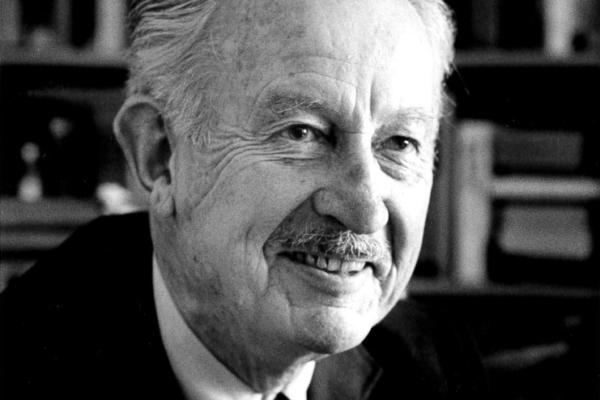
John R. May is named as SFF’s first director. May previously worked in the federal government, leading an agency that curbed wartime inflation and rent increases, and served in the Navy during World War II.
1950s
1952
1952 Partner Spotlight
With a $12,000 grant, SFF helps in the formation of KQED, which becomes the widest-reaching public media outlet in the Bay Area.
1957
The Council for Civic Unity, which SFF began supporting in the 1950s, makes headlines in 1957 by helping San Francisco Giants star Willie Mays purchase a home soon after the Giants franchise moved from New York to San Francisco. Residents and builders in the Sherwood Forest neighborhood pressured the homeowner to refuse the sale because Mays was Black.
1960s
1968
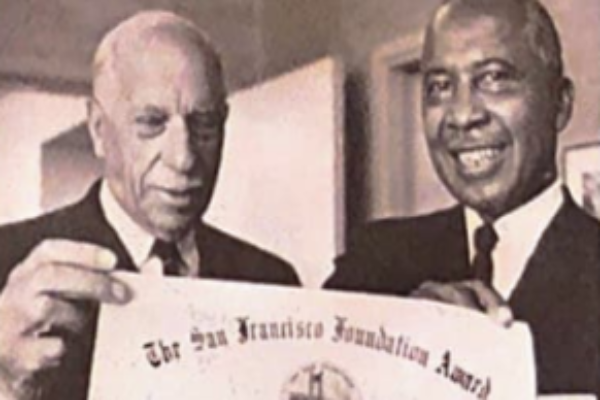
SFF awards a three-year $100,000 grant to the NAACP Legal Defense and Educational Fund to open a new San Francisco office to better serve the community.
Late 1960s
SFF makes grants to a grassroots community organization in Richmond, community relations training for Marin police, and model cities programs in Marin and Hunters Point intended to address racial and economic inequity. Several endowment gifts earmarked for “improving race relations” help make this possible.
1970s
1974
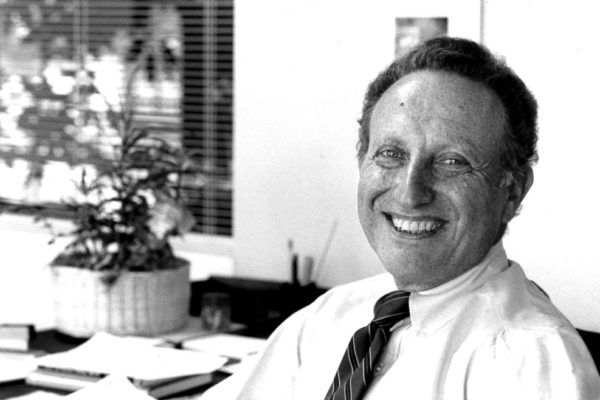
Martin A. Paley, who previously served on a social planning council and as a public health planner for hospitals and medical schools, becomes SFF’s second director.
1970s
1970s Partner Spotlight
SFF is an early funder of LGBTQ2SIA+-serving organizations, including the Pacific Center for Human Growth, the oldest LGBTQ2SIA+ community center in the Bay Area, and the Whitman-Radclyffe Foundation, an LGBTQ2SIA+ organization that provided substance abuse support. Between 1970 and 1981, SFF is the top funder in the nation for LGBTQ2SIA+ organizations.
1970s
1970s Partner Spotlight
Hand in hand with a larger disability rights movement in the 1970s, SFF helps seed fund organizations, including the Center for Independent Living, working to support people living with disabilities. For example, in 1979, SFF awards grants to help people with hearing disabilities in Oakland, as well as to Horizon House, an assisted living center for adults living with cognitive disabilities.
1980s
1980
Soon after the California Legislature votes to restrict Medi-Cal funding for abortion, SFF issues a $50,000 grant to Planned Parenthood of Alameda and San Francisco counties to help people with low incomes obtain early abortions.
1982
SFF launches the Koshland Civic Unity Fellowship Program in memory of Daniel E. Koshland Sr. The program empowers fellows in specific neighborhoods to reshape their communities for the better. As of 2022, more than 500 Koshland Fellows have brought creativity, vision, and passion to more than 30 neighborhoods since the program’s founding.
1982
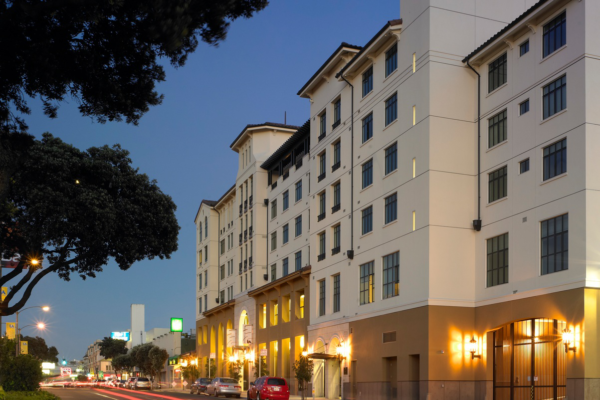
Thanks in part to an anonymous gift to establish a blue-ribbon Housing Task Force, SFF establishes BRIDGE, the Bay Area Residential Investment & Development Group, to produce quality affordable housing. By 1983, SFF earmarks a total of more than $1 million for BRIDGE. Today, BRIDGE continues to be a leading nonprofit developer of affordable housing in California and beyond.
1984
Under tremendous community pressure, SFF petitions to modify the Buck Trust, the largest gift the foundation has received to date and one whose value has unexpectedly skyrocketed. The gift carries the stipulation that grants from the trust serve only Marin County, leaving SFF in the position of issuing millions in grants per year to one of the wealthiest counties in the nation. SFF’s petition requests that part of the Buck funds be made available to other Bay Area counties, where needs are greater. Two years later, SFF loses the petition and the trust’s administration is transferred to the Marin Community Foundation.
1980s
1980s Partner Spotlight
SFF helps combat the AIDS crisis through targeted grants and support. Our first grant is a 1983 distribution to the AIDS/Kaposi’s Sarcoma Research and Education Fund. By 1989, we make more than 26 grants, totaling more than $500,000, to AIDS-related causes.
1987
Robert M. Fisher, the former mayor of Lafayette, California, and former president of John F. Kennedy University, succeeds Martin Paley to become SFF’s new director.
1989
From its 1989 inception, the Multicultural Fellowship Program has the distinct mission of connecting young people of color to the world of philanthropy. The program, which counts SFF CEO Fred Blackwell as one of its alumni, continues to equip leaders of color with professional development opportunities in philanthropy today.
1989
Nearly 20 years before the term “impact investing” is coined, SFF develops a loan program for nonprofits, beginning our long commitment to aligning our investment strategy with our mission.
1990s
1993
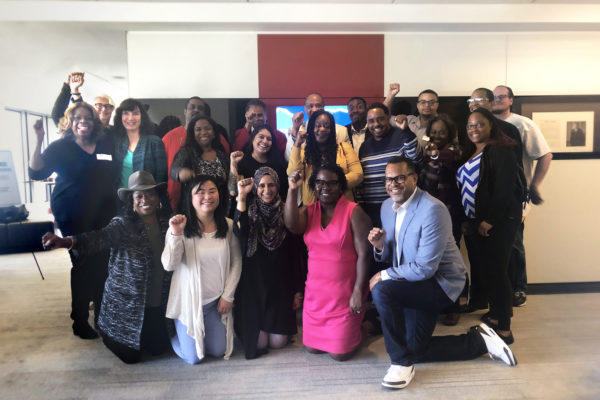
Recognizing the power of religious institutions in community organizing, SFF introduces the FAITHS initiative. Within two years, more than 700 congregations become part of the initiative, developing a faith-based action plan to help create an equitable Bay Area.
1994
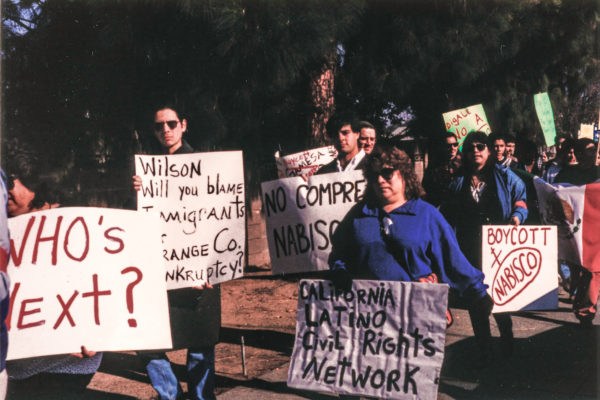
During a surge in anti-immigrant sentiment in California, voters pass Proposition 187, stripping public benefits from undocumented immigrants. Aspects of the law remain in effect for 20 years. SFF’s work to oppose the measure helps create the Interfaith Movement for Human Integrity (formerly known as the Interfaith Coalition for Human Rights), which continues to be a major force in immigrant and criminal justice today.
1997
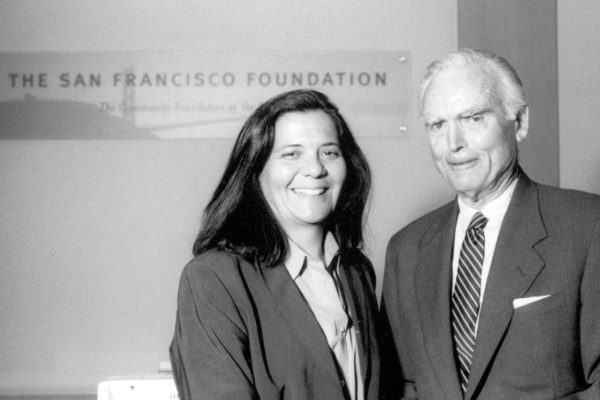
SFF recruits Dr. Sandra R. Hernández, the San Francisco director of public health and former director of the San Francisco Office on AIDS, to become the first woman, first LGBTQ2SIA+ person, and first person of color to serve as CEO.
2000s
2003
2003 Partner Spotlight

SFF begins incubating the Latino Community Foundation, which leads initiatives to improve the health and well-being of thousands of Latinx families in the Bay Area. Since becoming an independent foundation in 2016, LCF has continued to partner closely with SFF to empower Latinx communities in California.
2004
Working with the state of California’s Employment Development Department, SFF creates the Bay Area Workforce Funders Collaborative to help people working low-wage jobs gain skills and training and find sustaining careers. Today, the program, now known as ReWork the Bay, is part of our core set of initiatives advancing racial equity and economic inclusion in the region.
2005
SFF forms the Bay Area Livable Communities Initiative (now called the Great Communities Collaborative) to implement environmentally friendly affordable housing development around public transit to reduce urban sprawl.
2006
To address attacks and policies targeting Arab, Middle Eastern, Muslim and South Asian Americans after 9/11, SFF partners with Asian Americans and Pacific Islanders in Philanthropy (AAPIP) to create the Civic Engagement Fund for AMEMSA Communities.
2007
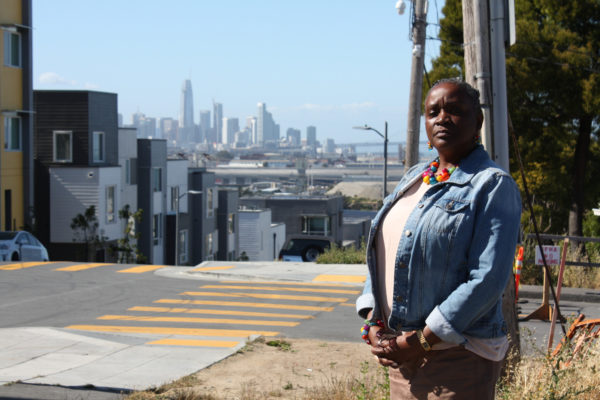
In partnership with the San Francisco Mayor’s Office of Housing and Enterprise Community Development, SFF helps create HOPE SF, a program to rebuild and transform distressed public housing sites in San Francisco.
2007
SFF pulls together a broad swathe of organizations and agencies to introduce Healthy San Francisco, a first-of-its-kind program to ensure affordable healthcare for uninsured people across the city.
2008
On the 2008 California ballot, Prop 8 asks residents to constitutionally define marriage as taking place between a man and a woman. SFF comes out strongly against this attack on LGBTQ2SIA+ community members and makes a $250,000 grant to fight the proposition.
2010s
2010s
2013 Partner Spotlight
SFF establishes our Artistic Hubs Cohort to help prevent arts organizations from being displaced from their communities. The program, still running today, supports 15 arts organizations that advance racial and economic equity and serve as cultural anchors for underserved communities.
2014
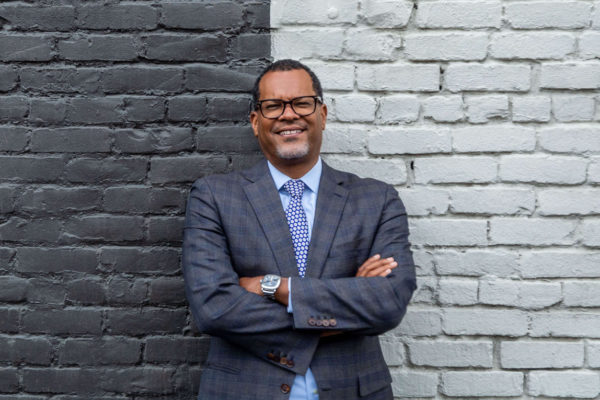
Fred Blackwell, the assistant city administrator for the city of Oakland and former director of the San Francisco Redevelopment Agency, becomes SFF’s fifth CEO.
2016
After holding a listening tour around the Bay where residents consistently name inequity as the most common barrier to their ability to thrive, SFF creates the Equity Agenda, making racial equity and economic inclusion our North Star.
2016
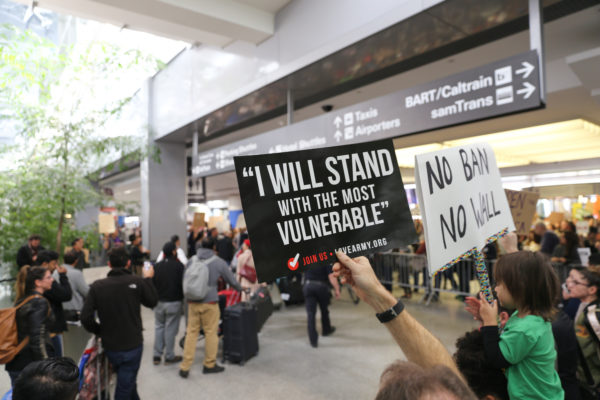
Days after Donald Trump is elected president of the United States, SFF expedites the introduction of our Rapid Response Fund, which provides quick turnaround funding to grassroots organizations addressing racial equity in the Bay Area. Some of the fund’s earliest grants support communities reeling from the new administration’s Muslim ban and other attacks against immigrant communities.
2019
SFF helps organize philanthropic organizations, the government and the private sector to create the Partnership for the Bay’s Future, a $500 million initiative to protect, preserve and produce affordable housing in the Bay Area.
2020s
2020
Two days after the Bay Area’s shelter-in-place order in March 2020, SFF organizes our COVID-19 Emergency Response Fund to fast-track support for housing, employment and food assistance and address anti-Asian racism connected to the pandemic.
2021
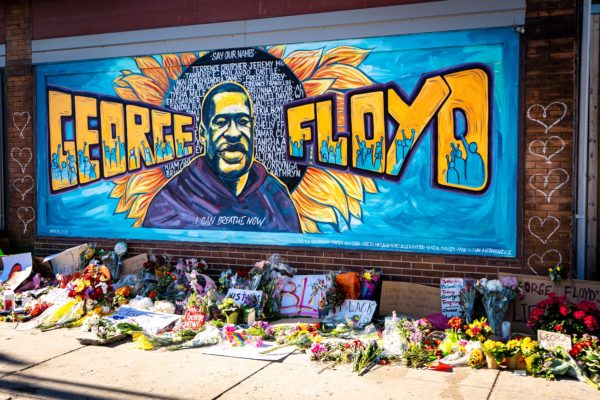
Amid a national racial reckoning following the police killings of George Floyd, Breonna Taylor and many other Black Americans, SFF dedicates an additional $10 million to help build power in Black and Indigenous communities and communities of color in the Bay Area and throughout the state.

